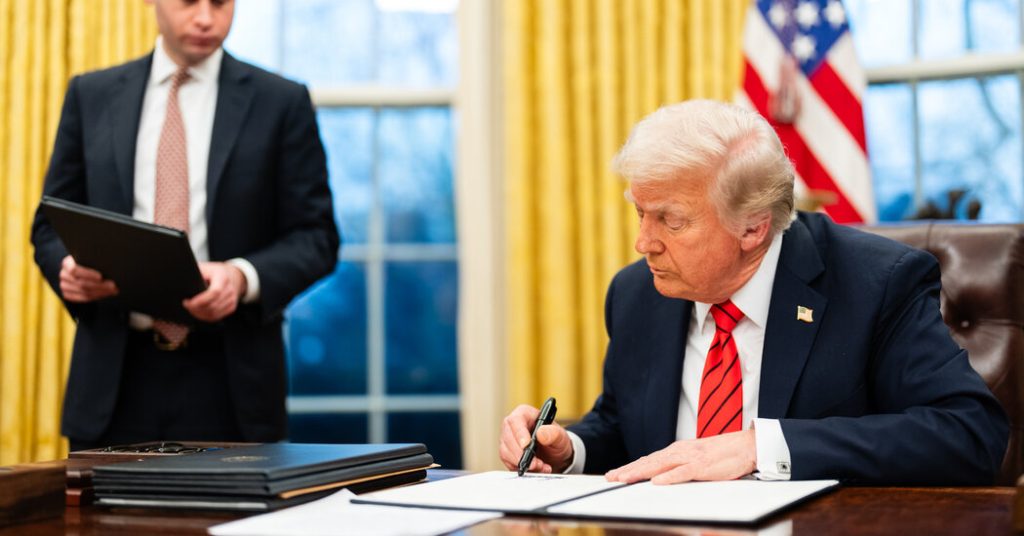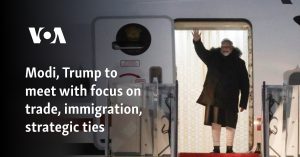President Trump signed an executive order on Wednesday calling for “reform” to the Foreign Service, America’s corps of professional diplomats, “to ensure faithful and effective implementation” of his foreign policy agenda.
It was the latest of several recent moves by Mr. Trump to assert greater control over the federal work force, which the president largely views with a blend of suspicion and hostility. Mr. Trump and his allies believe that left-leaning bureaucrats will work to thwart his agenda and that he should have far more power than past presidents to install proven loyalists throughout the government.
To that end, Mr. Trump’s order, titled “One Voice for America’s Foreign Relations,” directs the secretary of state to “implement reforms in recruiting, performance, evaluation and retention standards.” It also directs officials to “revise or replace the Foreign Affairs Manual,” along with “any handbooks, procedures or guidance” governing diplomacy.
The executive order also makes explicit the price of defying Mr. Trump’s orders. “Failure to faithfully implement the president’s policy is grounds for professional discipline, including separation,” it says.
All foreign policy arms of the government, it adds, must devise “an effective and efficient means” of ensuring that the president’s orders are followed.
The executive order would appear to challenge basic and longstanding principles of the Foreign Service: that career diplomats should be hired based on their qualifications and expertise, not their political views, and that dissent should be welcomed and not punished.
As part of the federal civil service, professional diplomats enjoy special job protections against partisanship and political retribution. Mr. Trump seems intent on weakening those protections.
In an initial statement, the American Foreign Service Association, which represents professional diplomats, said it was still assessing the impact of the order. But the group noted that its members posted around the world “carry out the foreign policy initiatives of the president, regardless of party.”
“We hope that any administration would value the expertise and knowledge of the Foreign Service, including its ability to provide advice on foreign policy matters,” the statement said, adding that the group would “always defend the integrity and nonpolitical nature of the Foreign Service so that our members can continue to serve the American people.”
Separately, State Department officials are grappling with more proposed cuts to personnel. Some ambassadors have been told this week to present lists of cuts of 10 to 20 percent of employees who are local citizens, said a person briefed on the demands, who spoke on condition of anonymity to avoid retribution.
Edward Wong contributed reporting.








